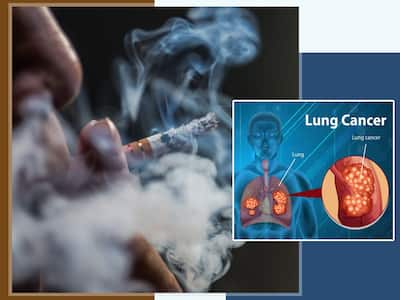
The surge in tobacco-related cancers among the early age group presents a critical public health challenge in India.
In recent years, there has been a worrisome trend observed, with an increasing number of individuals in the early age group being diagnosed with tobacco-related cancers. Tobacco is one of the most severe worldwide health issues of the twenty-first century, contributing significantly to the rising burden of cancers, chronic illnesses, and related death. This alarming development highlights the urgent need for greater awareness and effective measures to combat the devastating impact of tobacco use on public health.
Tobacco-Related Cancer: What You Need To Know
Traditionally, tobacco-related cancers were predominantly associated with older individuals, but a shift in the demographic profile is being witnessed. Oncologists across India are reporting a rise in cases where patients aged below 40 are diagnosed with various forms of cancer, such as lung, oral, and oesophagal cancer, directly linked to tobacco consumption. This concerning pattern points to the fact that younger people are being adversely affected by the detrimental health consequences of tobacco use, which was previously considered a problem more prevalent in older generations. As per a published study the oesophagus, lung, hypopharynx, and mouth are the most common TRC areas in both males and females. Males in the Northeast area had the highest chance of having oesophagal cancer (1 in 27), 1 in 67 for lung and hypopharynx cancer, and 1 in 143 for combined mouth and tongue cancers. Females also had the highest incidence of oesophagal and lung cancer (1 in 63 females) and mouth cancer (1 in 250) in the Northeast.
Several factors contribute to the surge of tobacco-related cancers in the early age group. Firstly, the widespread availability and affordability of tobacco products, including cigarettes, bidis, and smokeless tobacco, contribute to their easy accessibility among young individuals. Additionally, aggressive marketing tactics by tobacco companies, combined with inadequate regulations, have further enticed impressionable minds. Social influences, such as peer pressure, also play a significant role in initiating and sustaining tobacco use among young people, further exacerbating the problem.
Tobacco-related cancers impose a heavy toll on affected individuals, their families, and the healthcare system. The early onset of these cancers means that patients often face more aggressive disease progression, reduced treatment options, and lower survival rates compared to older patients. The economic burden is also substantial, with the costs of prolonged treatment, palliative care, and lost productivity. Moreover, the emotional and psychological impact on young patients and their families cannot be overlooked, as the diagnosis of cancer at a young age is particularly distressing and disruptive to their lives.
READ RELATED: Nutritional Power of Watermelon: Enhancing Heart Health and Hydration With a Refreshing Twist
To combat the growing menace of tobacco-related cancers among the early age group, comprehensive and multi-faceted measures are imperative. This includes strict enforcement of tobacco control laws, raising public awareness about the dangers of tobacco use, implementing effective cessation programs, and engaging with schools and communities to promote healthy lifestyles and discourage tobacco consumption.
The surge in tobacco-related cancers among the early age group presents a critical public health challenge in India. Swift action is required to reverse this alarming trend, safeguard the health and well-being of young individuals, and alleviate the tremendous burden placed on the healthcare system. By adopting a holistic approach, we can strive to create a tobacco-free future for the generations to come.
Total Wellness is now just a click away.
Follow us on
window.addEventListener(‘load’, (event) => {
// $(document).ready(function(){
$(‘#commentbtn’).on(“click”,function(){
(function(d, s, id) { var js, fjs = d.getElementsByTagName(s)[0]; if (d.getElementById(id)) return; js = d.createElement(s); js.id = id; js.src = “//connect.facebook.net/en_US/sdk.js#xfbml=1&version=v2.3”; fjs.parentNode.insertBefore(js, fjs);}(document, ‘script’, ‘facebook-jssdk’));
$(“.cmntbox”).toggle();
});
// });
});






